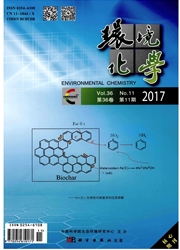

 中文摘要:
中文摘要:
随着集约化畜牧养殖业的不断发展,抗生素被广泛用作饲料添加剂以控制畜禽疾病和促进畜禽生长.用于畜禽养殖业中的抗生素绝大部分都不能被动物体所完全吸收,而是以原形或代谢物的形式随动物的粪便排出体外,然后通过各种途径进入到土壤和水体中,给人类健康带来巨大威胁.本文综述了好氧堆肥、厌氧发酵、高级氧化和人工湿地对畜禽粪便和养殖废水中抗生素的去除效果,重点讨论了不同运行参数对处理工艺去除抗生素的影响,最后根据现行研究仍存在的问题提出今后的工作建议,为畜禽养殖业抗生素污染的控制提供参考.
 英文摘要:
英文摘要:
With the development of intensive animal husbandry,antibiotics are widely used as feed additives to control livestock disease and promote animal growth. However, instead of being assimilated by animal guts,high percentage of antibiotics are excreted out as prototype or metabolites with animal feces and enter the water and soil through various pathways,thus posing potential risks to human health. This article summarizes the performance of aerobic compost, anaerobic fermentation,advanced oxidation and constructed wetlands on the removal of antibiotics in livestock manure and wastewater. We focus on discussing the effects of different operation parameters on treatment processes for antibiotics removal. Finally,according to existing problems,this review puts forward some future research proposals for the control of antibiotic pollution in livestock and poultry breeding.
 同期刊论文项目
同期刊论文项目
 同项目期刊论文
同项目期刊论文
 期刊信息
期刊信息
